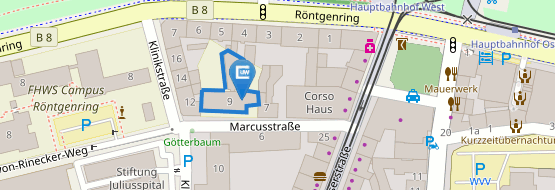Join Us
We now welcome applications for PhD positions!
13 PhD positions are available for 3 years starting on 01.11.2024. Payment is based on the German TV-L scale (E13, 65%).
We offer:
- A strong and widely visible international research environment
- An interdisciplinary and structured PhD program
- Intensive support, mentoring and career development
General requirements
- Enthusiasm for interdisciplinary research
- Scientific interest in the neurobiology of approach and avoidance behaviour
- Openness to translational research perspectives linking research in animals, healthy human participants and patients
- Social competence and ability to work in a team
- Excellent English language skills
Specific requirements
For the specific requirements of individual projects, please see the following table including links to project details. Individual projects focus on mice ![]() or humans
or humans ![]() and address physiological or pathological
and address physiological or pathological ![]() conditions.
conditions.
Conditions
The University of Würzburg is an equal opportunities employer. Applications of women are thus especially encouraged; applications of disabled persons will be given preferential treatment to those of other candidates with equal qualifications.
How to apply:
Please ensure to submit the following documents (ideally compiled to a single pdf file):
| CV | Please include copies of certificates and transcripts of records for the bachelor's and master's degree. |
| Letter of motivation | Please describe briefly why you are interested in obtaining a PhD and what fascinates you in your field of research (max. 1 page). |
| Research exposé | Please outline your research interest with reference to the goals of this Research Training Group. Please also mention 2-3 PhD projects (see Project descriptions) that seem most interesting to you and fit with your expertise (1-2 pages). |
| Additional certificates | Please ensure to add other relevant certificates of educational and academic achievements. |
Applications should be submitted by email to rtg2660@uni-wuerzburg.de
Application deadline is 15.06.2024.
Selection procedure
The selection of PhD students for this Research Training Group involves the following steps:
-
Screening (until 21.06.2024): Applications will be screened by the Principal Investigators and qualified candidates will be selected for step two, the recruitment symposium. Primary selection criterion is scientific excellence as mirrored in a timely graduation with excellence, a relevant and experimental bachelor/master thesis, as well as a match of expressed research interests with the RTG’s goals. Secondary criteria are female gender, diversity, and language skills (English). Suitable candidates will be invited to the recruitment symposium by 21.06.2024.
-
Recruitment symposium (22.07.-02.08.2024): Qualified applicants will be invited to an online recruitment symposium with candidates participating individually via internet. The symposium starts with a short introduction of the PIs. Then, candidates shall present their previous scientific work plus their ideas for possible RTG PhD projects (10 min). Afterwards, a structured interview will follow (20 min) and candidates will be given the opportunity to ask for further details on individual projects, the qualification programme or the general structure of the RTG (10 min). Candidates will be evaluated using the following criteria: demonstrated academic excellence (timely and above average), proven qualification fitting to RTG projects, motivation and interest in research to date, achievements in experimental work, quality and coherence of presentations and discussion, and proven ability to work in a team.
-
Final selection (until 07.08.2024): The final selection step will be based on a ranking of the candidates by all members of the interview panel, leading to a grading of each candidate according to the criteria outlined above as excellent (A), very good (B), or good to average (C). C-rated candidates will be rejected. If we have more A-rated candidates than openings, they will be ranked according to our secondary criteria of gender equality, diversity, and language skills. If we have less A-rated candidates than openings, B-rated candidates will be considered for projects too, however, they will only be considered if all PIs agree that they have a prospect of achieving an excellent dissertation within the RTG. Candidates will then be selected for specific projects based on their preferences and the Principal Investigators’ rankings.
Successful candidates, who were offered a PhD position, are expected to start on 01.11.2024.


